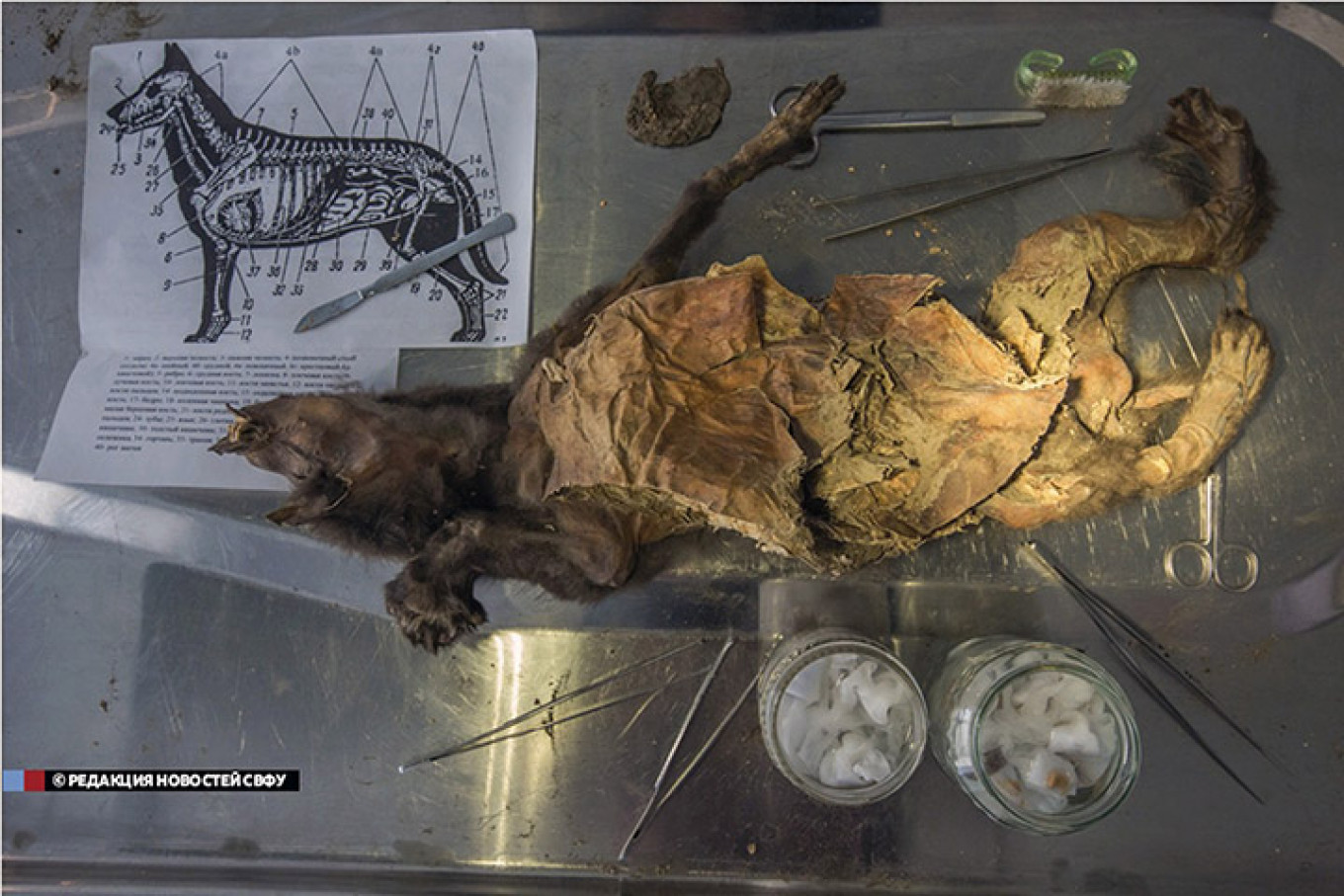Scientists in Far East Russia have discovered a well-preserved two-month-old puppy dating back 18,000 years that left them wondering: Is this a dog or a wolf?
The furry creature was discovered largely intact within the permafrost in the republic of Sakha in the summer of 2018, The Siberian Times reported Monday. Its fur, teeth, lashes and whiskers were left almost undamaged after thousands of years, as seen in images snapped by North Eastern Federal University researcher Sergei Fyodorov.

Sweden’s center for paleogenetics carbon-dated the pup to 18,000 years ago, placing it in the last Ice Age known as the Pleistocene. Russian colleagues named it Dogor, translated from the Yakut language as “friend,” after a genome analysis identified the canine as male.
The center gathered extensive data that would normally allow it to easily identify whether the puppy was a wolf or a dog, researcher David Stanton said.
“The fact that we can’t might suggest that it’s from a population that was ancestral to both — to dogs and wolves,” Stanton told CNN on Wednesday.
“We don’t know exactly when dogs were domesticated, but it may have been from about that time,” he was quoted as saying.
Studies based on previous discoveries in Siberian permafrost suggest that dogs may have been domesticated between 27,000 and 40,000 years ago, earlier than previous estimates of 11,000-16,000 years.
Dogor may be “something halfway between the two,” Stanton said.
“This is intriguing, what if it’s a dog? We can’t wait to get results from further tests,” Fyodorov told The Siberian Times.
